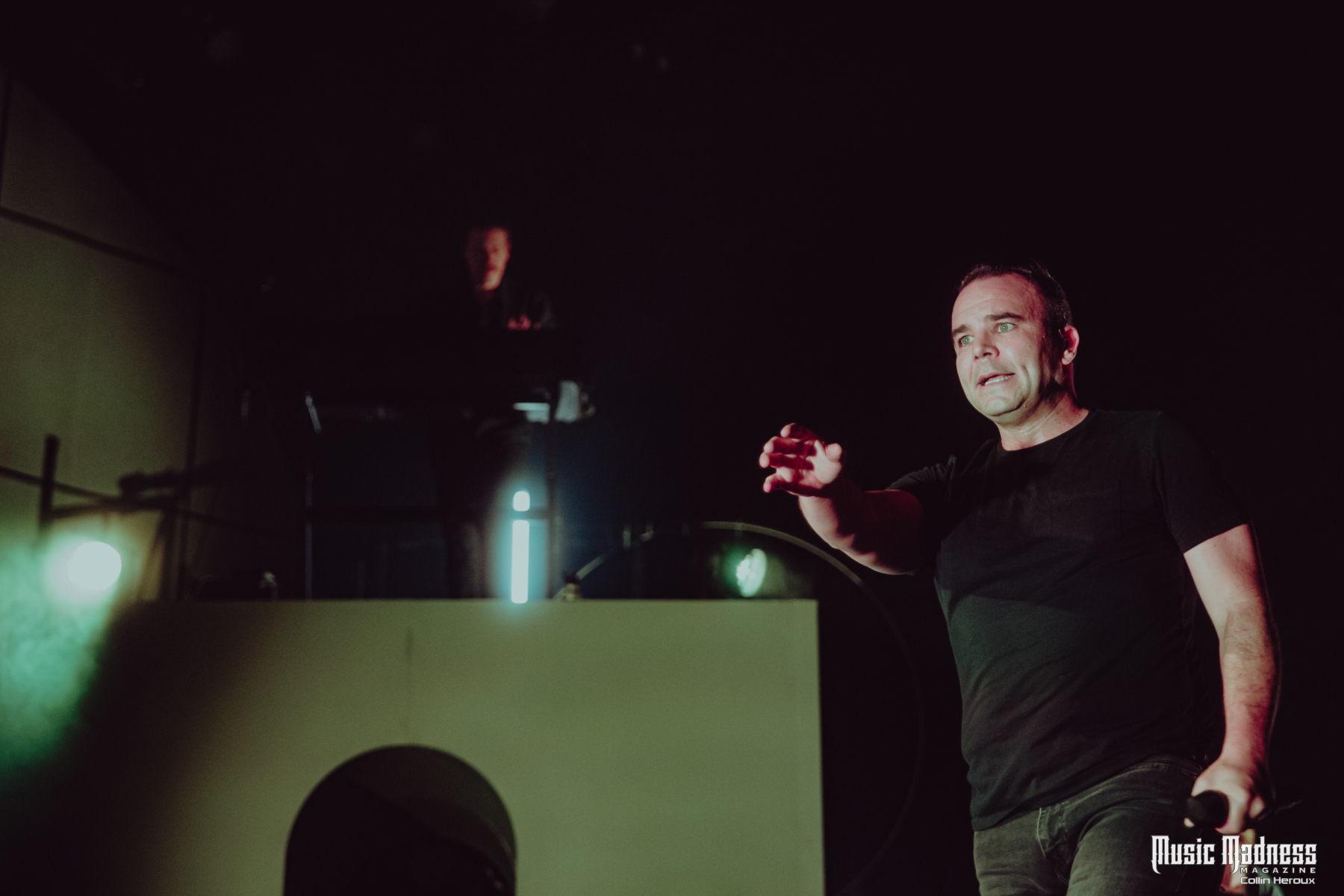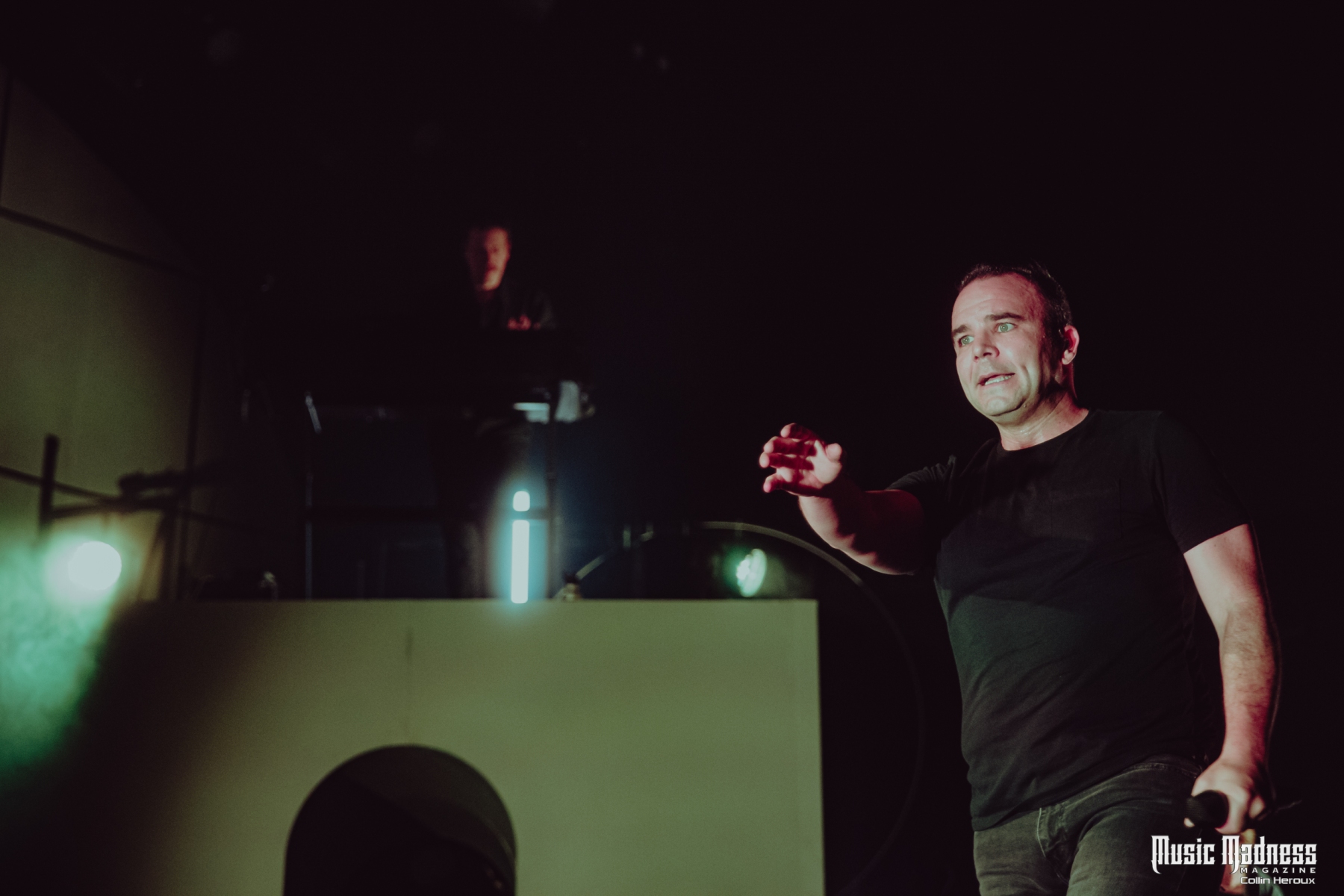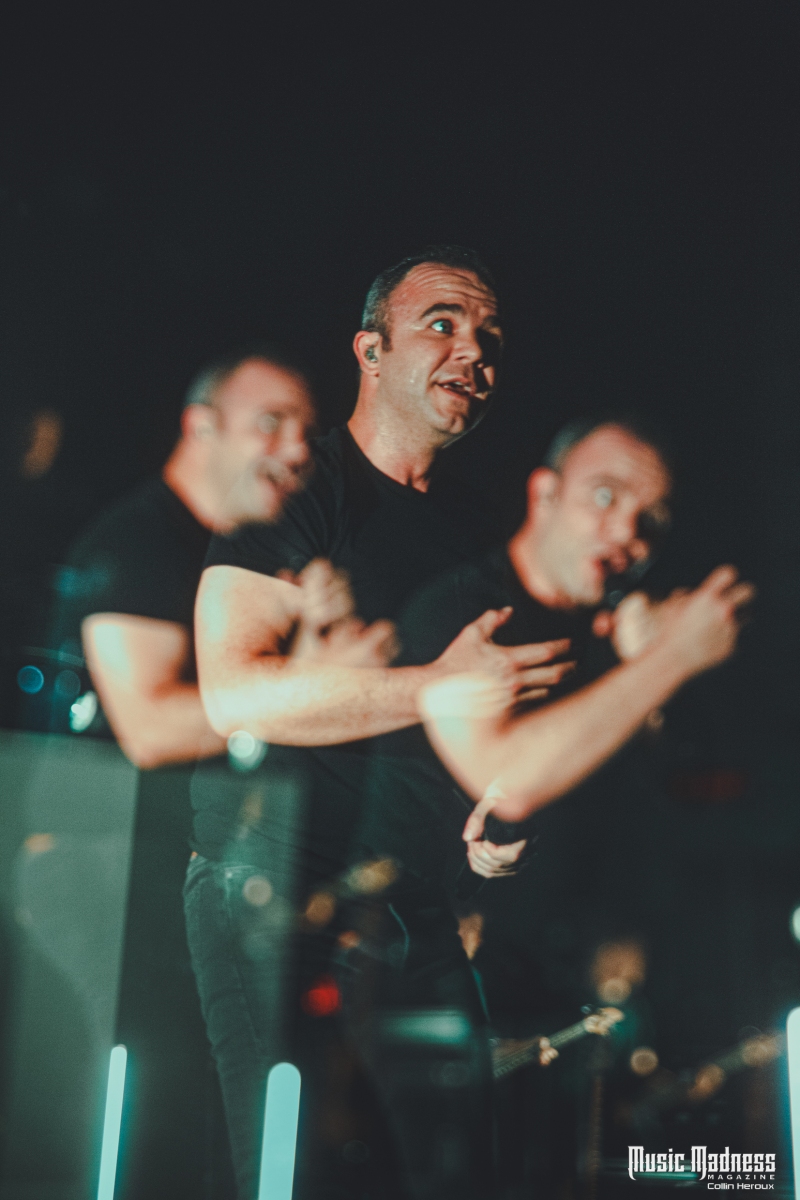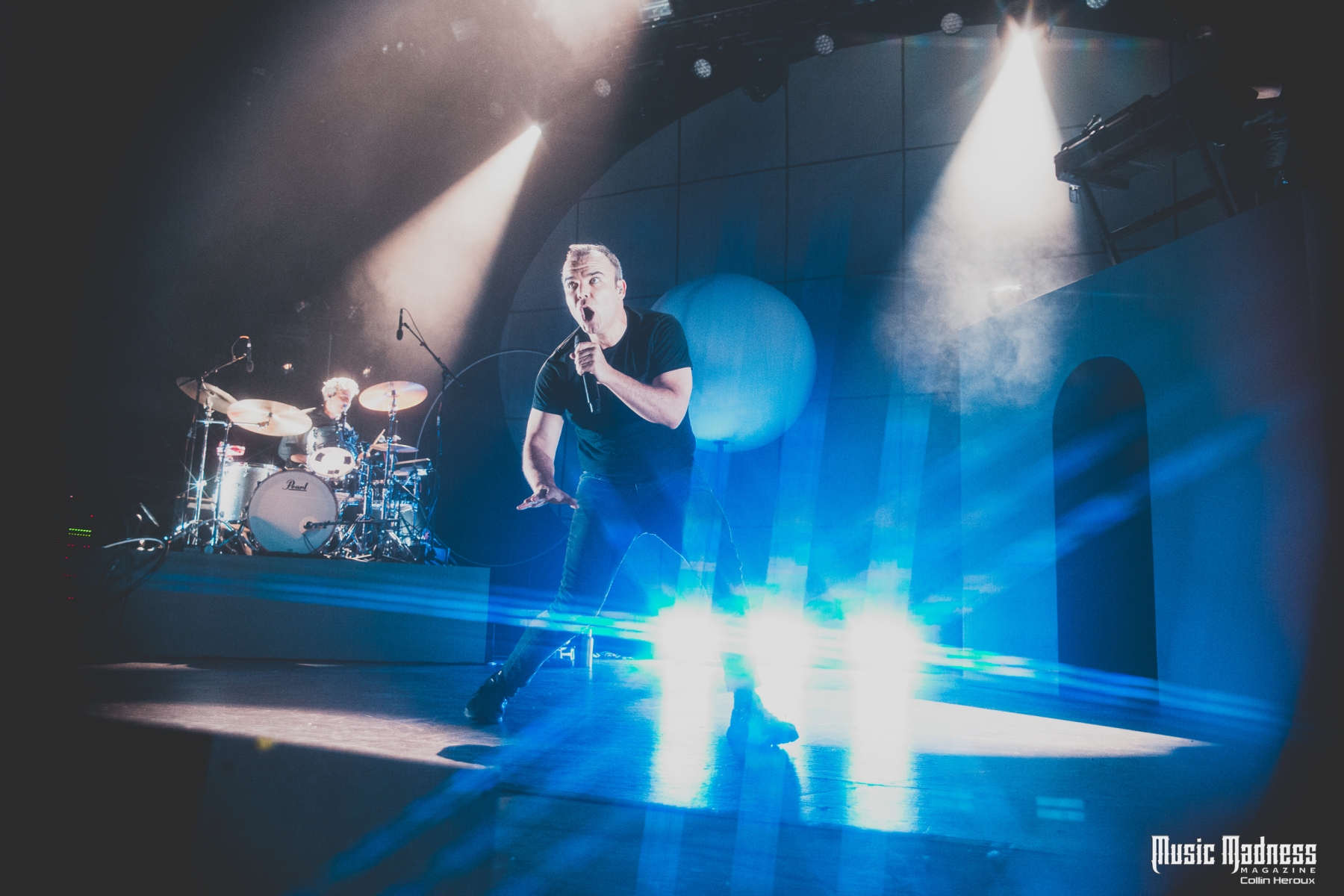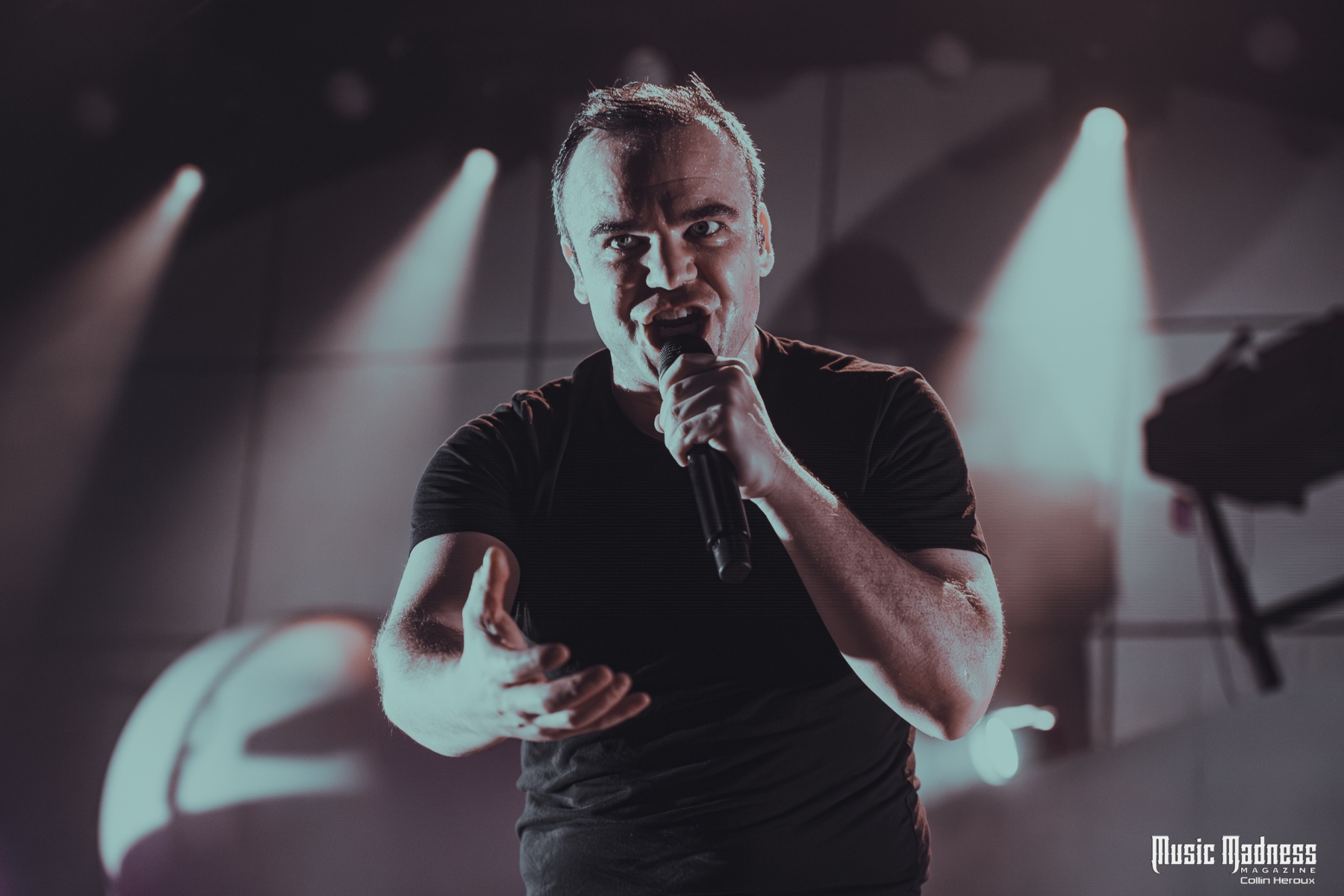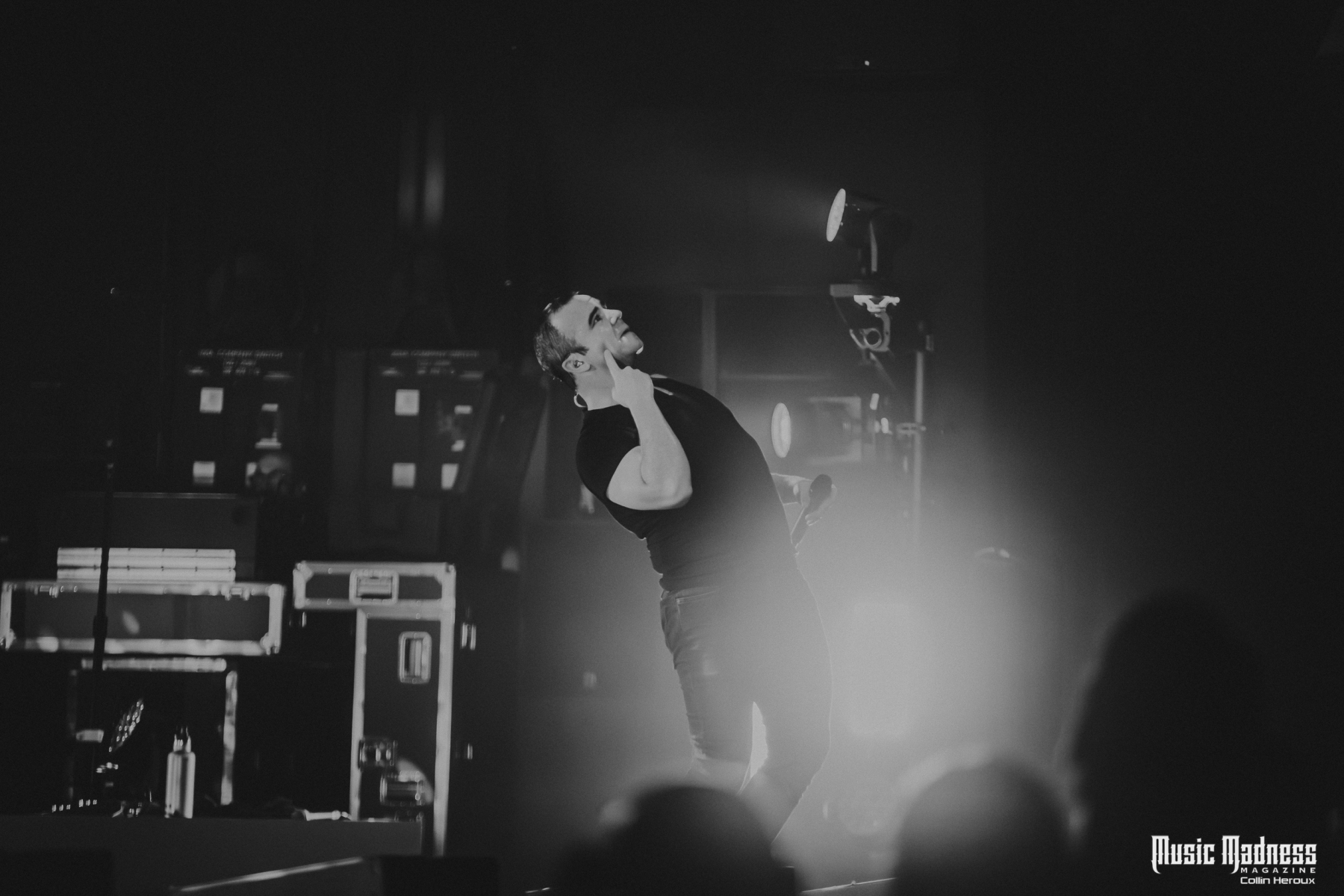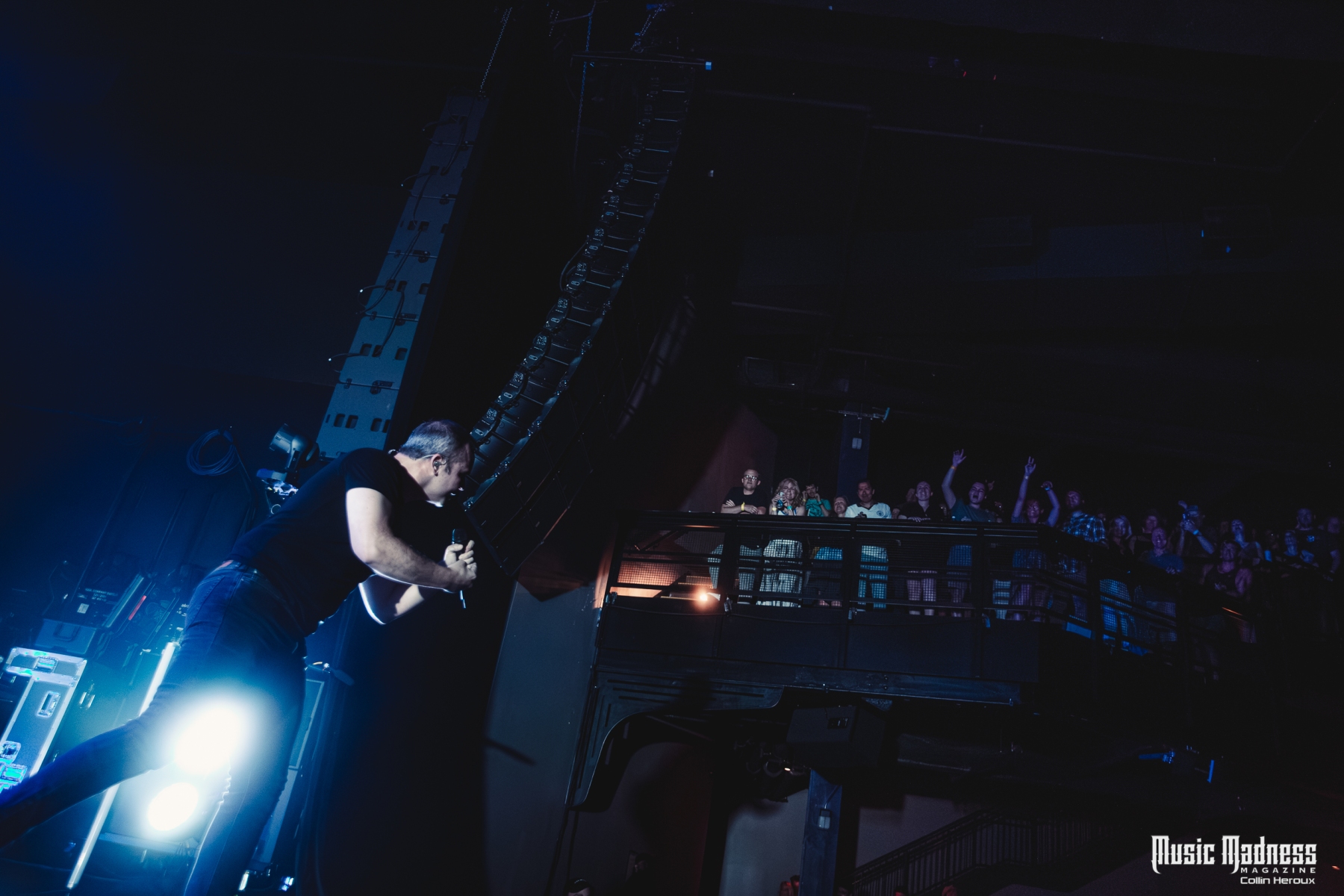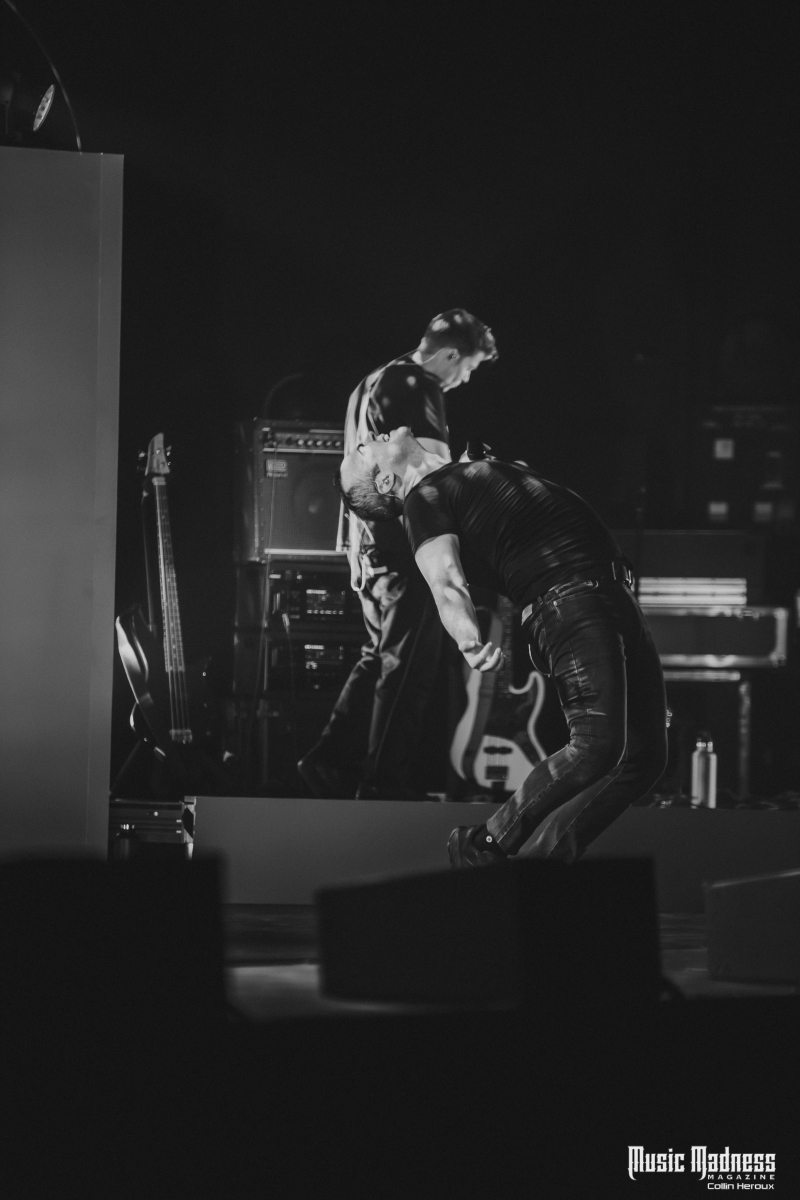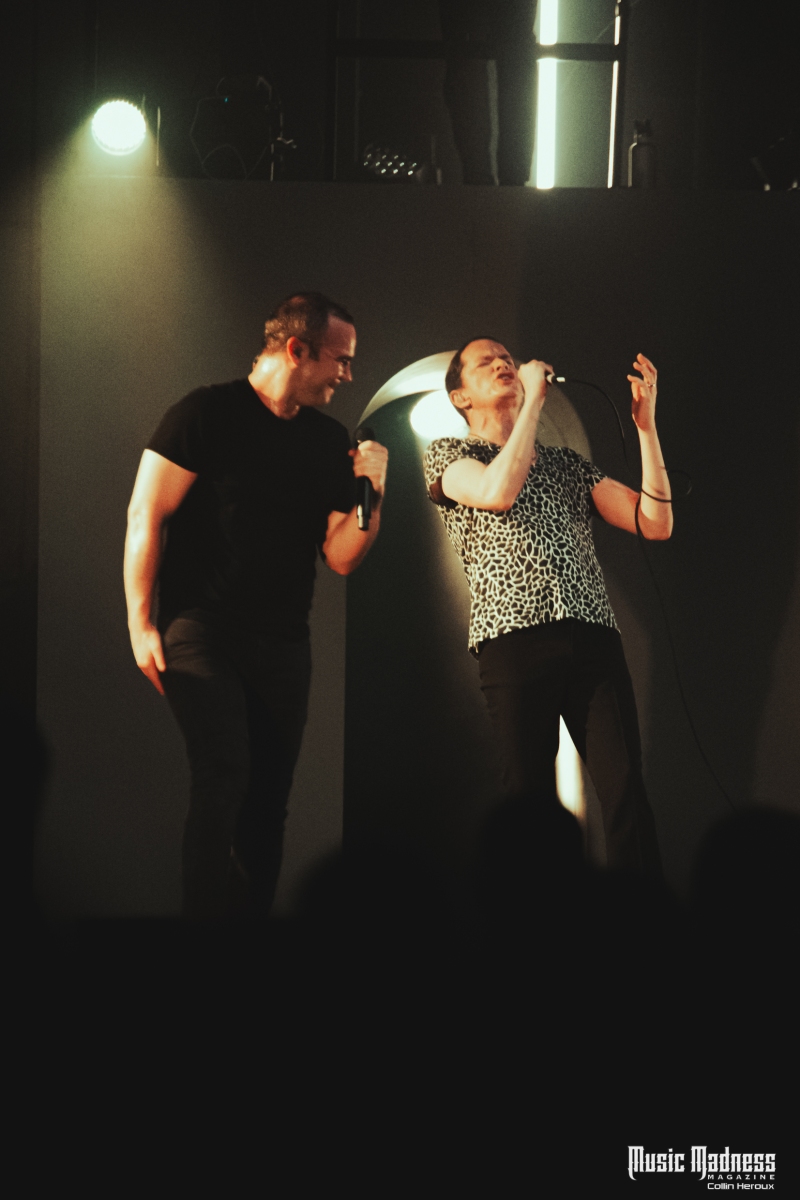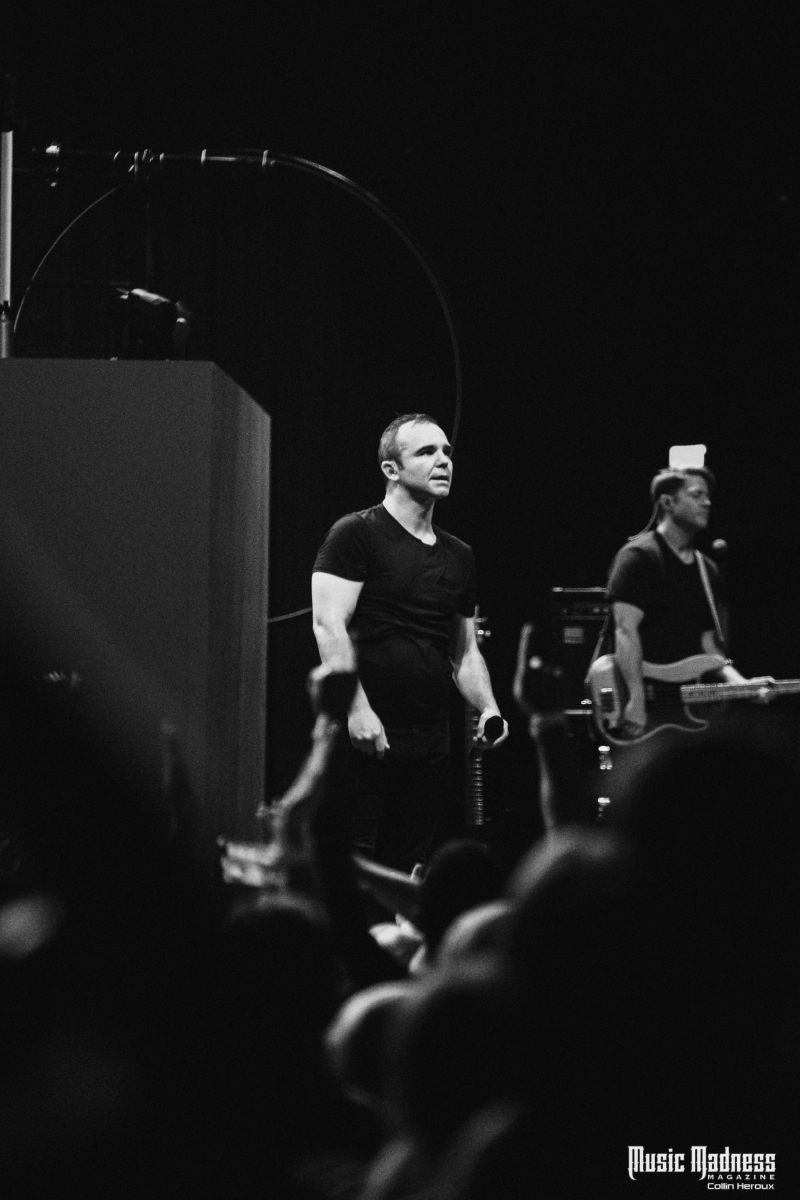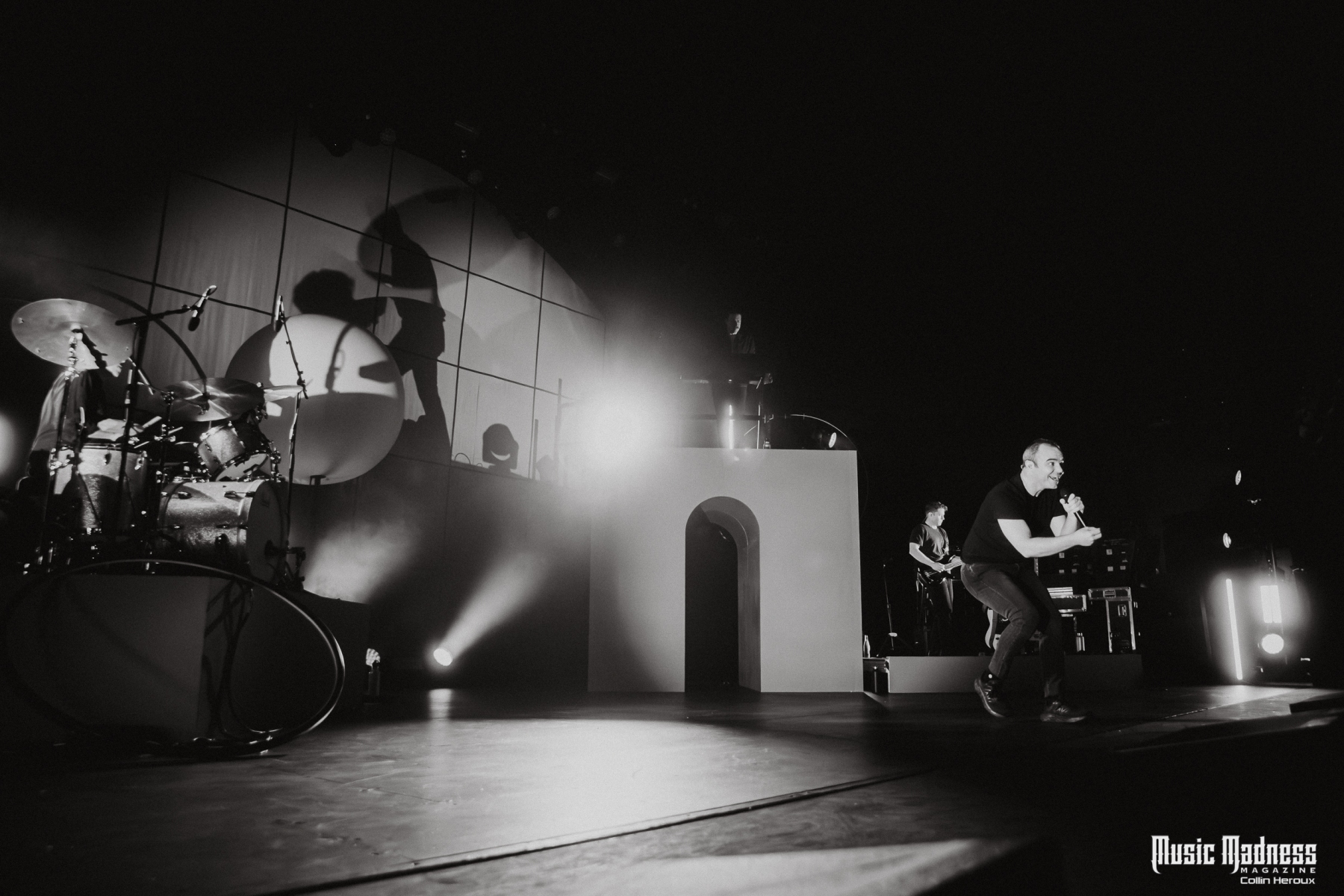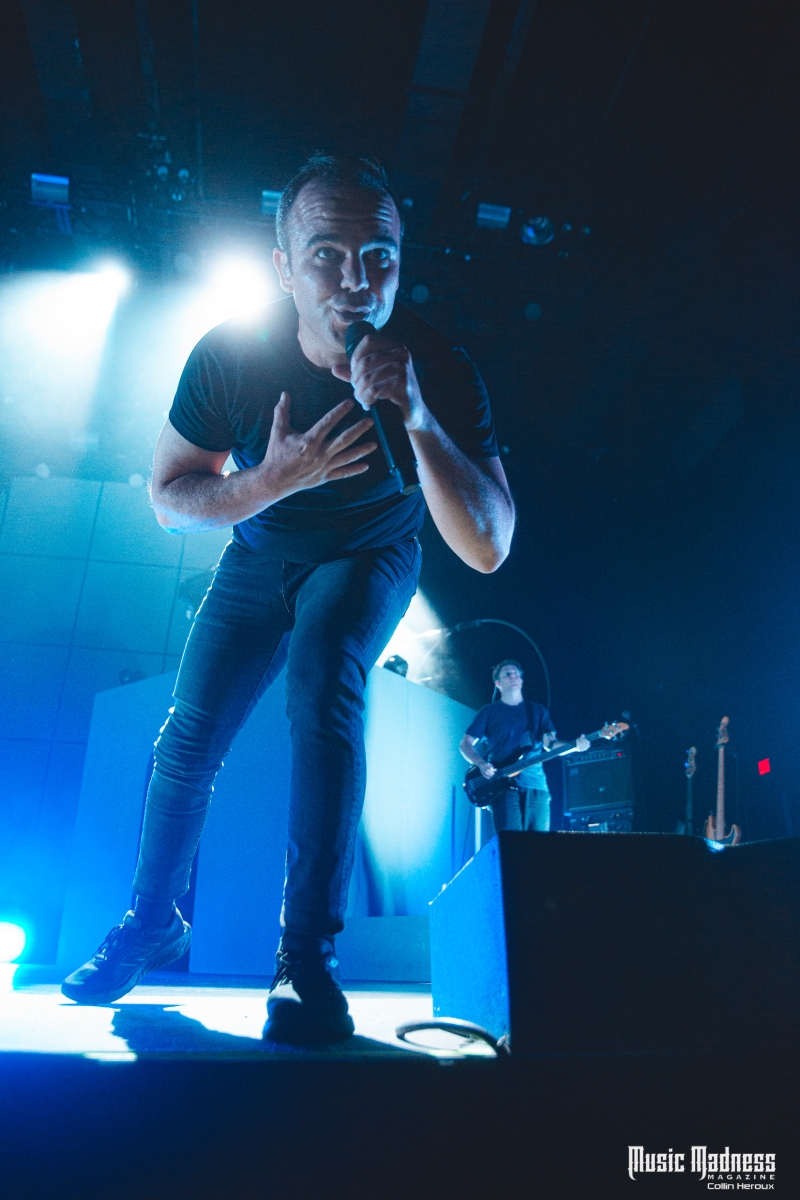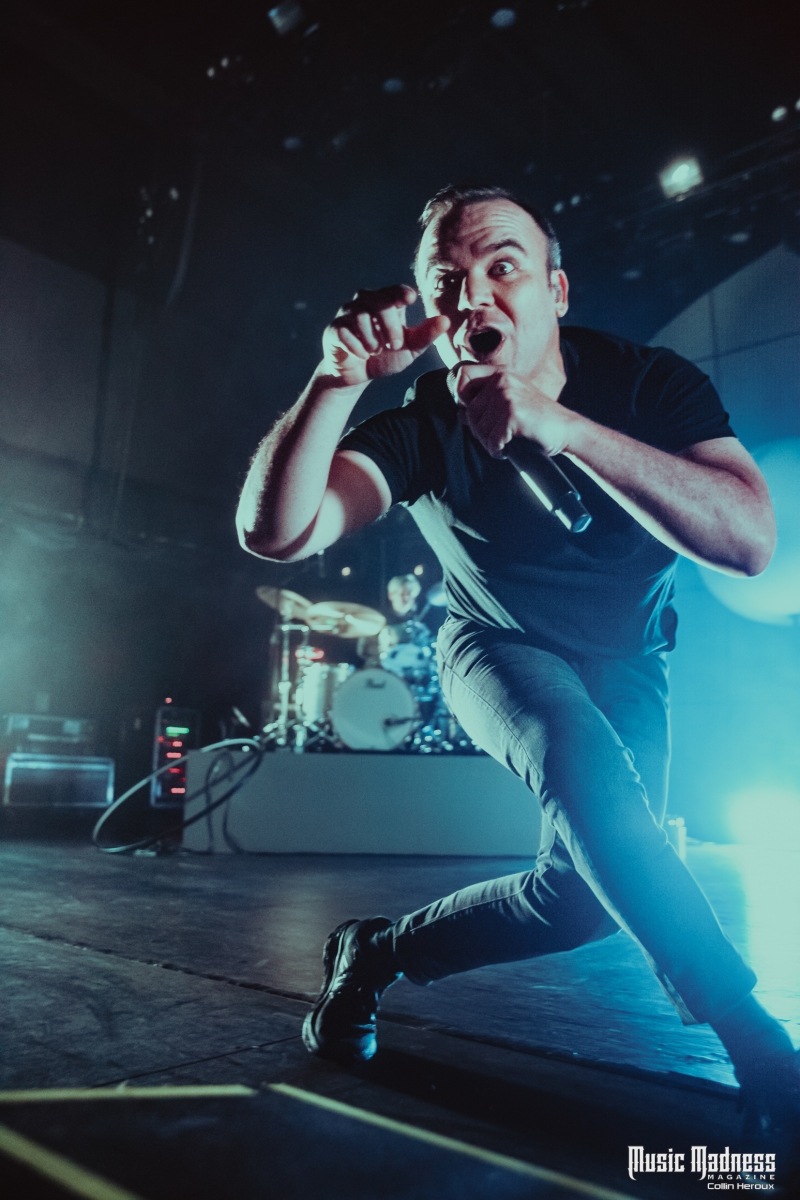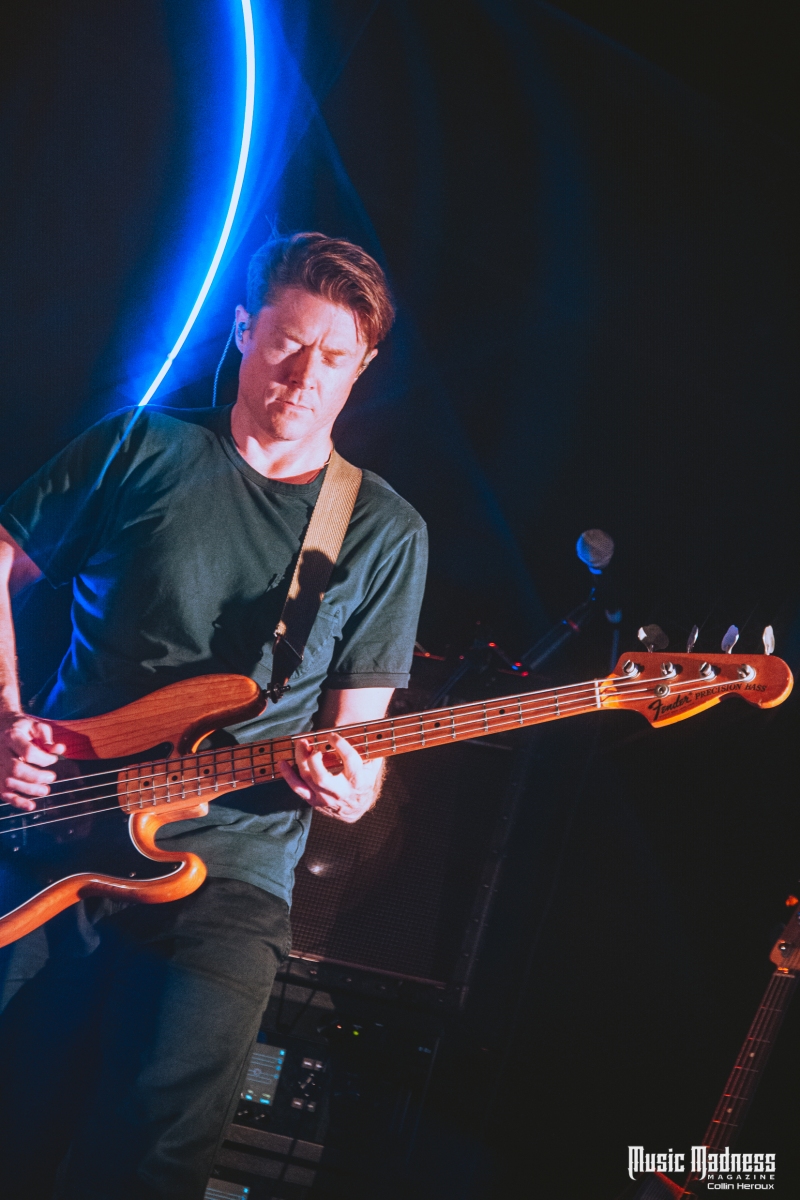
There’s no shortage of music to stir the soul these days – one of the few upsides of the infinite algorithmic horizon is that your musical journey of discovery is only as limited as the amount of time you’re willing or able to devote to it. But there exists an even higher echelon of gravity than that – those few times-in-a-generation voices that tap into something as essential to humanity at its very core. Future Islands, fronted by vocalist Sam Herring, is one such musical act, and their seventh album, People Who Aren’t There Anymore, is one of the very best of their career.
Future Islands’ tour opener in Boston finds them accompanied by fellow Baltimore denizens and members of the so-called “Wham City” collective Ed Schrader’s Music Beat, a duo with Schrader on vocals and drums, and Devlin Rice accompanying on bass. But Rice also has a deck that controls tracks from their more recent and upcoming albums, including high point ‘Riddles’ from the album of the same name, which captured some of producer and engineer Dan Deacon’s particular kind of lightning in a-bottle to great effect.
The band’s stage setup uses all of the space afforded by Roadrunner, including verticality. Guitarist William Cashion stands on a raised step stage-left, and well above him is keyboardist Gerrit Welmers. On the opposite side, at an angle, is drummer Michael Lowry. Each of the band members enters through a curved doorway, the only thing lit at the start, beneath where Welmers eventually ends up. The lion’s share of the stage is mostly empty though, everyone pushed back to give Sam Herring plenty of space, and anyone who has ever seen him perform knows exactly why.
The man is animated from the get-go, his expressive eyes two radiant points of light that feel like they’d remain distinctly visible from a football field away. He can snap a leg fully vertical up the side of his body at any moment’s notice, or cross the stage in one motion as he throws a fist out before him, only to come twirling back to center with the grace of a practiced dancer. Even knowing what I was getting into, having not seen the band in years it was still shocking and powerful to witness up-close, so singular is the presence he exudes. It’s like every look or even small gesture has a planetoid’s worth of gravity and intent – “captivating” fails to describe it. And equally as defining as his performance is his voice – while PWATA isn’t really a showcase for it as a recorded piece, as he has always done during live performances (including their breakout on Letterman ten years ago) he slips into a gravelly second voice, a kind of hidden infernal register. The departure from the typically pristine delivery and the way he snaps back between the two is incredible in the most literal sense of the word.
Between songs Herring speaks, as so many great bands do, of once playing the area’s storied Great Scott dive – he recalls being extremely sweaty, and only two songs in he is tonight as well; it’s cooler inside Roadrunner than it is outside under the malevolent “heat dome” that plagues this first night of the tour, but onstage he’s all characteristic intensity in songs, casting long shadows on the fake stucco behind him, roaring out during ‘Plastic Beach’ and ‘Peach’. ‘Before the Bridge’ starts with the entire stage dark save for the orb that has hovered over the back-center area, which is lit in white. The stoicism of the bass and synths are such a contrast to the often deeply intense vocal – though they and the drums are the bedrock of everything we hear – crafting a soundscape that can both contain and complement a voice like Herring’s is no small task, but over 18 years and 7 albums they’ve done so more than ably.
People Who Aren’t There Anymore has multiple songs that evoke a gnawing sleeplessness; before ‘Give Me the Ghost Back’ Herring describes the song as being about, “Staying up too late, trying to fall asleep… then the ghosts start coming out.” ‘Say Goodbye’ hits a similar note, and it’s one of the album’s strongest hitters – had they not risen to a new level of fame overnight on The Late Show all those years ago, it’s not hard to imagine songs from PWATA catapulting them to the same echelon when shown to the world. The band is joined by Ed Schrader for ‘Shadows’ – two titanic voices collaborating together in what is a perfect turn for this touring pair of acts. In ‘The Thief’, Herring passes the microphone between his hands underneath his legs while crouched, and his movements – it’s hard to know how much is choreographed and how much is just intuitive in-the-moment improvisation – grow in intensity for ‘The Sickness’ in which he mimes peeling a mask from his face.
The back end of the performance is a real treat, dipping more consistently into Future Islands’ older tracks, including “deep cut” ‘Like the Moon’ and ‘Long Flight’. The latter is a deeply emotional tale of coming home from touring to find your relationship has crumbled – his second voice breaks through often, and at one instrumental break, he retreats into the curved door and dives back out, sliding across the stage on his stomach. While that particular technique is newly afforded by their set dressings, his motions here and in songs like ‘Tin Man’ and the “lonely last goodbye” of ‘Vireo’s Eye’ feel well-honed, like they’ve become a part of his personhood and come from that deep-seated core that the music is so adept at accessing.
And the final song of the night is a slow, emotional comedown from the high the show has been. ‘Little Dreamer’ is a song with which the band have always closed their sets. Throughout the night, Herring has referred to songs as “being with [them] for a long time”, like they have a life of their own. To preface, he talks about how once he wanted this particular song to be far from him but then has come to realize it’s a “beautiful thing” to be able to revisit it onstage. The bass swells, he contorts… the song ends quietly and he pauses and stares off to the back of the room as if he can truly see the person about whom it was written somewhere out there, like his vision doesn’t stop at the walls of the building. It’s one final, moving gaze from one of the most essential live performing artists of this era.
Photos and Review by Collin Heroux

